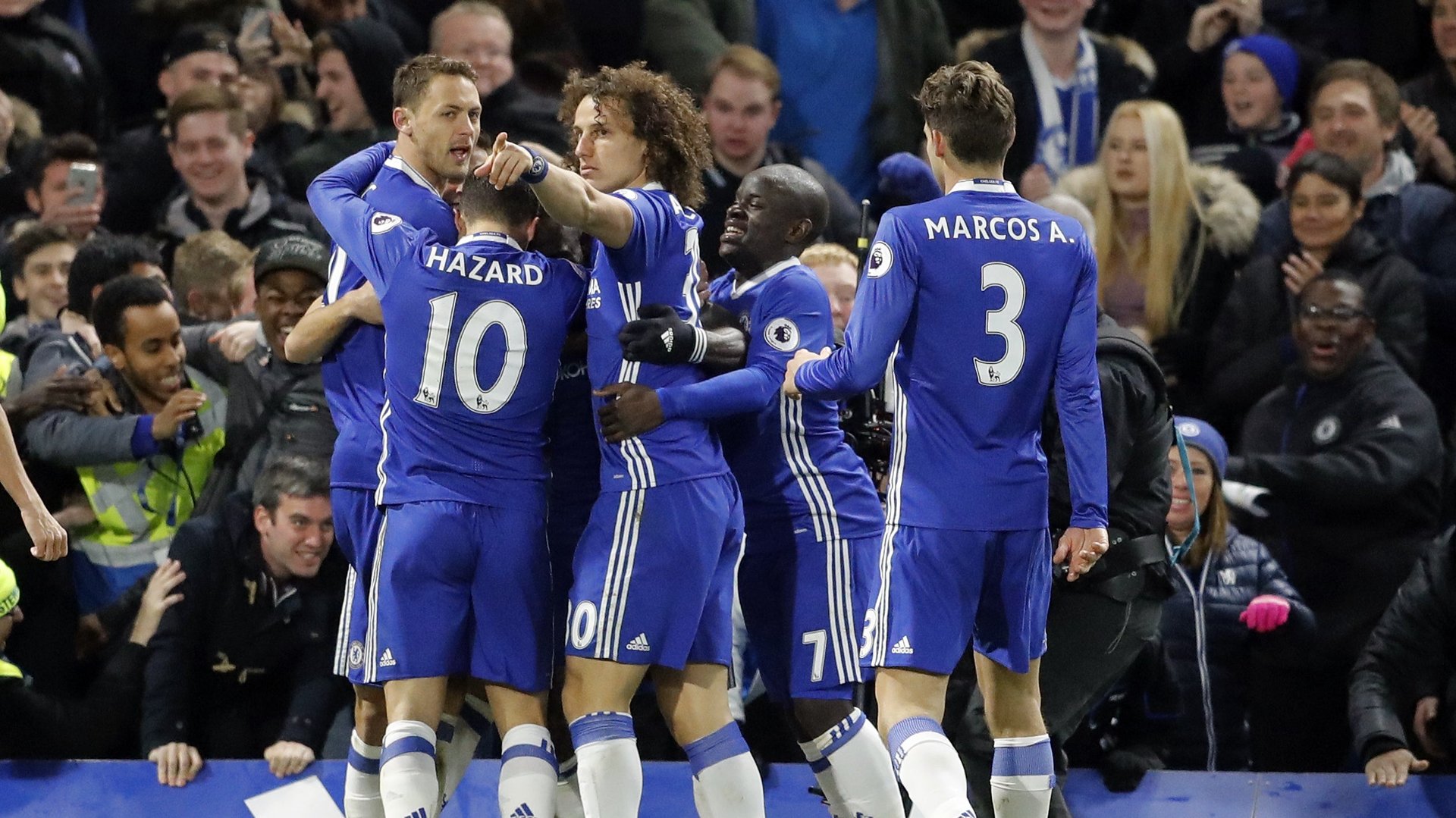The most popular sport in the UK is barely on television, even during the holidays
As Premier League soccer games kick off this holiday season, there will be cameras filming the match, broadcasting to televisions around the world, but for most of the games, no one in the UK will be watching.


As Premier League soccer games kick off this holiday season, there will be cameras filming the match, broadcasting to televisions around the world, but for most of the games, no one in the UK will be watching.
Over the traditional holiday period, from the weekend before Christmas through Jan. 2 (when the New Year’s Day holiday is observed this year), there will be 26 Premier League games contested, but only nine—about 35%—will be televised in the UK. For those in the British Isles, this is nothing new: any given week during the Premier League season, fans in America and elsewhere overseas can watch far more top-tier English soccer matches than Brits. But it’s particularly apparent around the holidays, when far more people have time off from work and might want to relax by enjoying 90 minutes supporting their favorite team.
It’s all due to one outspoken club owner from the mid-20th-century. Back then (and to this day) on any given weekend, the vast majority of Premier League fixtures take place on Saturdays at 3pm. But in the 1960s, Bob Lord, the former chairman of Burnley FC, a smallish club in the north-west of England, persuaded the chairmen of the other Football League (the controlling league that now sits below the Premier League, but still grandfathered the 3pm rule into its broadcasting traditions) clubs that if they blacked out televised football during the middle of the day, it would force fans to go out to see games in person (which brings in revenue for clubs), instead of staying home and watching on TV. That was enough to convince the league to impose a blackout on televised football between 2.45pm and 5.15pm on Saturdays that still stands today.
While that logic may have held true in the 1960s, when the only real international aspect of the sport was the World Cup and other international competitions, but in 2016, national leagues are viewed around the world by billions each year. A large slice of every Premier League club’s revenue now comes from television deals, especially for the less successful clubs in the league.
In fact, the league has exceedingly lucrative deals with foreign country’s broadcasters to show 3pm games (along with all the other games). In the US alone, the Premier League agreed in 2015 to a $1 billion deal with NBC for broadcasting rights to all games through the 2021-22 season. NBC has set up a system where it broadcasts three games on Saturday live on TV, and the rest are available to stream online for anyone that subscribes to NBC Sports. That means an ex-pat Chelsea fan in New York can watch considerably more Chelsea games than someone who actually lives in Chelsea.
So it stands to reason that if the Premier League were to offer the 3pm games to UK broadcasters, it would be able to bring in more cash to distribute to clubs.
In the meanwhile, the Premier League has started taking measures to get around the Saturday TV blackout. In recent years it has hosted games on Mondays, Wednesdays, and Fridays—all of which can be televised. The games tend to start quite late, at 7:30 or 8pm, and they still generally require Britons sign up for costly satellite TV subscriptions through Sky TV, which controls most of the broadcasting rights for Premier League soccer in the UK.
Lord’s rationale also falls down when considering that it’s near impossible for fans of most top-tier clubs to just buy tickets and show up to a 3pm Saturday game. The vast majority of tickets are held by season ticket holders, corporate entertainment accounts, and then first right of refusal on the remainder tend to go to fan-club members.
And the biggest shot of reality: even if every seat were available at every match, there just aren’t that many seats. For example, Turf Moor, Burnley FC’s stadium, seats roughly 22,500 people. Burnley has a population of 73,000. Why not let them watch their team on TV, especially during the cold winter months, or after tucking into turkey leftovers on Boxing Day?